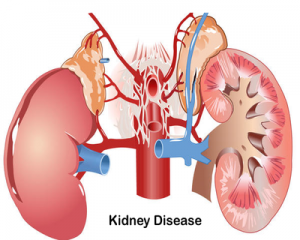- Home
- Editorial
- News
- Practice Guidelines
- Anesthesiology Guidelines
- Cancer Guidelines
- Cardiac Sciences Guidelines
- Critical Care Guidelines
- Dentistry Guidelines
- Dermatology Guidelines
- Diabetes and Endo Guidelines
- Diagnostics Guidelines
- ENT Guidelines
- Featured Practice Guidelines
- Gastroenterology Guidelines
- Geriatrics Guidelines
- Medicine Guidelines
- Nephrology Guidelines
- Neurosciences Guidelines
- Obs and Gynae Guidelines
- Ophthalmology Guidelines
- Orthopaedics Guidelines
- Paediatrics Guidelines
- Psychiatry Guidelines
- Pulmonology Guidelines
- Radiology Guidelines
- Surgery Guidelines
- Urology Guidelines
Skin Sodium Content Linked To Heart Problems In Patients With Kidney Disease: ASN study

Highlight
- Elevated sodium content in the skin correlates closely with left ventricular hypertrophy in patients with chronic kidney disease
Washington : New research may provide insights concerning the cause of changes in the heart’s structure that often occur in patients with chronic kidney disease (CKD). The findings, which appear in an upcoming issue of the Journal of the American Society of Nephrology (JASN), suggest that treatments targeting skin sodium may help protect CKD patients’ heart health.
Individuals with CKD are at elevated risk of developing heart problems and dying from cardiovascular causes. At least in part, these increased risks are related to a high prevalence and severity of left ventricular hypertrophy (LVH), an enlargement and thickening of the walls of the heart’s left ventricle. The cause of LVH in patients with CKD is unclear, although some studies suggest that excess sodium intake may play a role.
Recent research indicates that tissues such as skin and muscle may store sodium. Markus Schneider, MD (University of Erlangen-Nuremberg, in Germany) and his colleagues wondered whether sodium deposition in these newly identified sodium stores is related to the degree of LVH in CKD patients. Using a technique called 23Na-magnetic resonance imaging, the team measured skin sodium content at the level of the calf in 99 patients with mild to moderate CKD. The researchers also assessed total body water levels, 24-hour blood pressure, and left ventricular mass.
Skin sodium content, but not total body water, correlated with systolic blood pressure. Moreover, skin sodium content correlated more strongly than total body water did with left ventricular mass. Results from additional analyses suggested that skin sodium is a strong explanatory variable of left ventricular mass independent of blood pressure or total body water.
“We believe that skin sodium reflects deposition of excess sodium,” said Dr. Schneider. “Our finding of a strong relationship between skin sodium and changes in the structure of the heart suggests that interventions that reduce skin sodium content for example dietary sodium restriction or medications that lead to increased sodium excretion may have beneficial effects on the heart in patients with kidney disease.”

Disclaimer: This site is primarily intended for healthcare professionals. Any content/information on this website does not replace the advice of medical and/or health professionals and should not be construed as medical/diagnostic advice/endorsement or prescription. Use of this site is subject to our terms of use, privacy policy, advertisement policy. © 2020 Minerva Medical Treatment Pvt Ltd